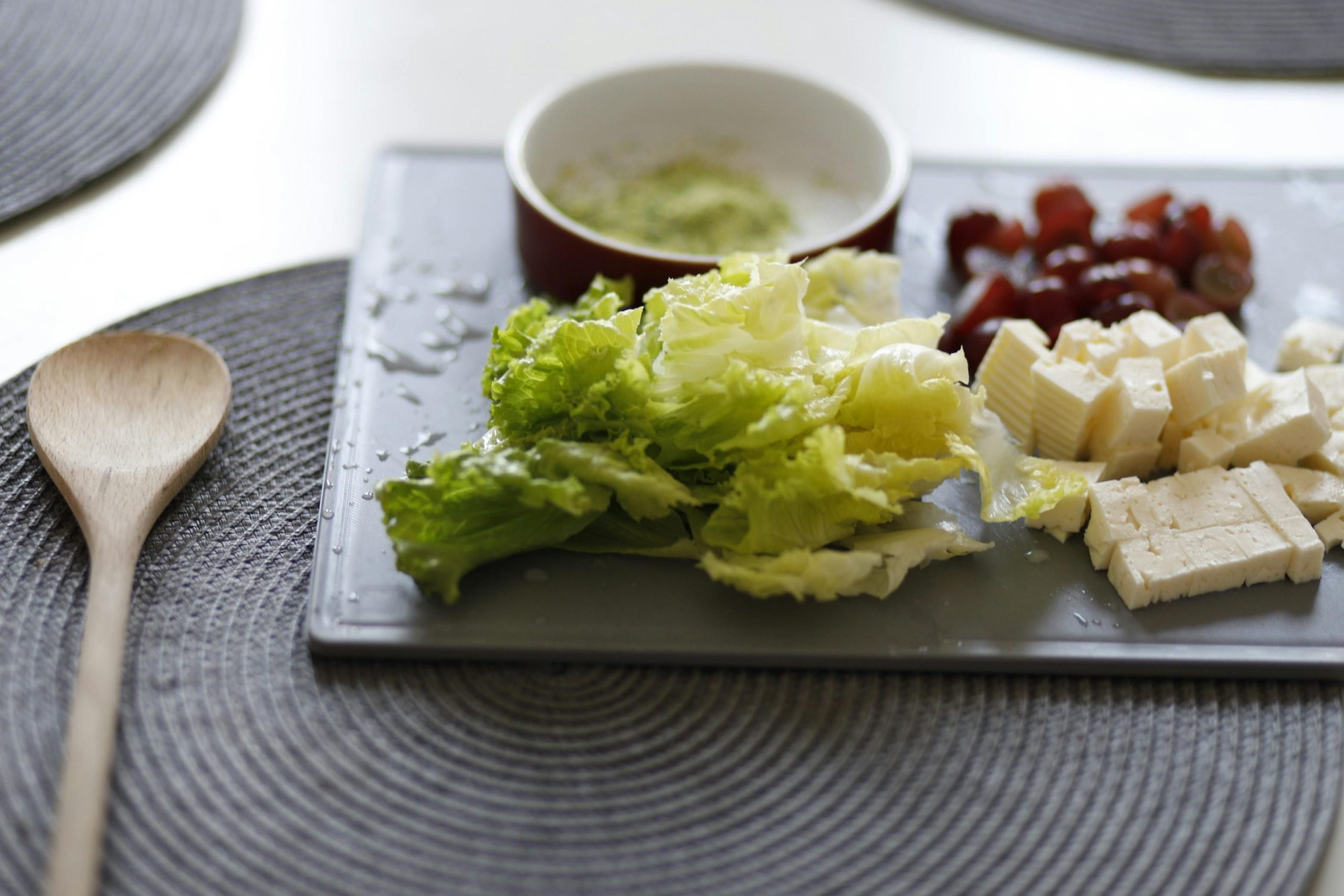Wondering how to elevate your meals with a healthier, tastier alternative to traditional butter?
Many are on the lookout for dairy-free options that don’t compromise on flavor or texture.
Plant based spreads offer a delightful and nutritious substitute, featuring ingredients like olive oil, coconut, and various nut butters.
In this blog post, we’ll explore the top plant based spreads of 2024, delve into their health benefits, and share delicious recipes to enhance your culinary adventures.
Top-Rated Plant Based Spreads to Try in 2024

As we dive into the top-rated plant-based spreads of 2024, it’s clear that consumer feedback and expert reviews have highlighted a few standout options. These spreads are not only praised for their excellent taste but also for their creamy texture that closely mimics traditional butter. Among the favorites, the Country Crock Plant Butter with Olive Oil has received top marks for its rich flavor and versatility in both cooking and as a spread.
Another notable mention includes the Kite Hill European Style Plant-Based Butter Alternative, which is celebrated for its unique almond-based formula that offers a slightly sweet and nutty flavor. This spread is particularly popular among those who appreciate a gourmet touch in their butter alternatives. Both of these products have made significant impressions due to their ability to blend seamlessly into various dishes, enhancing flavors without overpowering them.
Exploring the Various Types of Vegan Spreads
Vegan spreads come in a delightful variety of types, each offering unique flavors and textures to enhance your meals. Nut-based spreads like almond, cashew, and peanut butter are popular for their creamy texture and rich taste. These spreads are not only great on toast but also serve as excellent bases for sauces and desserts.
On the fruitier side, fruit-based spreads such as jams and jellies made from berries, apricots, or figs provide a sweet touch perfect for breakfast or snacks. Meanwhile, legume-based spreads, including various types of hummus and bean dips, offer a savory and protein-rich option. These spreads are versatile, serving well with crackers, vegetables, or as a flavorful addition to sandwiches.
Key Ingredients in Plant Based Spreads and Their Benefits

Plant-based spreads often feature a variety of healthful ingredients that not only enhance flavor but also offer significant nutritional benefits. Common ingredients include olive oil, known for its heart-healthy monounsaturated fats, and coconut oil, which provides a rich, buttery texture. Additionally, nut butters such as almond or cashew add a creamy consistency and are packed with proteins and healthy fats.
These ingredients are chosen not only for their flavor but for their health advantages. For example:
- Olive oil can help reduce cholesterol levels and lower the risk of heart disease.
- Coconut oil contains medium-chain triglycerides (MCTs) known for supporting metabolism.
- Nut butters offer plant-based protein, essential for muscle repair and growth. These benefits make plant-based creamy spreads an excellent choice for health-conscious consumers.
Health Benefits of Using Plant Based Spreads
Switching to plant-based spreads can be a game-changer for your health. These spreads are typically lower in saturated fats and cholesterol-free, making them a heart-friendly choice. They’re made from plant-based oils like olive and coconut, which contribute beneficial nutrients without the health risks associated with high saturated fat levels found in traditional butter.
Beyond just being a healthier fat option, many plant-based spreads are fortified with essential vitamins such as Vitamin A, D, and E. This fortification helps enhance your daily nutritional intake, supporting overall wellness. Additionally, these spreads can be a part of a balanced diet that supports weight management and reduces the risk of chronic diseases by promoting healthier eating habits.
Protein-Packed Plant Based Spreads for Your Diet
For those aiming to boost their protein intake, plant-based spreads offer some excellent options. Spreads made from nuts, seeds, and legumes like almond butter or hummus are not only delicious but are also packed with protein. These can be a fantastic addition to any meal, providing both flavor and a nutritional boost.
Ensuring Quality in Your Plant Based Spread Choices

When choosing plant-based spreads, it’s crucial to consider the quality of ingredients and the manufacturing process. Look for products that source their ingredients responsibly and have transparent labeling. Opt for spreads that use non-GMO, organic ingredients and avoid those with unnecessary additives or preservatives to ensure you’re getting the best quality and health benefits.
How Plant Based Spreads Are Tested and Evaluated
Testing plant-based spreads involves a combination of sensory evaluations and consumer feedback. Sensory methods like Check-All-That-Apply (CATA) and hedonic scales are used to assess attributes such as taste, texture, and aroma. These methods help determine how closely plant butters mimic traditional dairy butter and which sensory properties are most liked or disliked by consumers.
Consumer satisfaction is equally crucial in evaluating plant-based spreads. Products are often tested in blind taste tests where consumers rate their overall liking without knowing the brand. This process ensures that the feedback is unbiased and reflects genuine consumer preferences. The results from these tests are critical for manufacturers to fine-tune their recipes and meet consumer expectations.
The Final Verdict on Tested Vegan Butters
After rigorous testing, two vegan butters stood out in 2024. The first excelled due to its creamy texture and ability to maintain structure at various temperatures, making it ideal for both spreading and baking. The second was noted for its rich, buttery flavor that performed well on toast and in cooking, providing a satisfying dairy-free alternative without any artificial aftertaste.
Innovative Plant Based Spread Products on the Market

The market has seen an influx of innovative plant-based spread products in 2024. Brands like Edenesque and Whole Moon introduced new plant milks that double as creamy spreads, featuring unique ingredients such as pistachios and watermelon seeds. These products are designed to cater to health-conscious consumers looking for nutritious, flavorful options.
Another notable innovation is the Lurpak Plant-Based spread, launched as a part of a strategy to offer both dairy and non-dairy products. This spread is crafted to replicate the taste and functionality of its dairy counterpart, making it suitable for a variety of culinary uses, from spreading to baking. This move highlights the industry’s shift towards versatile, plant-based products that don’t compromise on taste or quality.
Delicious Recipes Using Plant Based Spreads
Plant-based spreads are not just for toast or sandwiches; they can be the star ingredient in many recipes. From creamy sauces to rich desserts, these versatile spreads add a burst of flavor and smooth texture to any dish. For instance, using a cashew-based spread can transform a simple pasta dish into a creamy, indulgent meal without any dairy.
For those with a sweet tooth, incorporating almond butter or coconut-based spreads into your baking can yield delicious results. Imagine creating dairy-free brownies that are just as rich and fudgy as their traditional counterparts. These plant-based alternatives are not only healthier but also cater to those with dietary restrictions, making your kitchen more inclusive.
Best Plant Based Spreads for Snack Time
When it comes to quick and tasty snacks, plant-based spreads are a game-changer. Nutiva’s Organic Hazelnut Spread is perfect for dipping fruits or spreading on crackers. For a savory option, Tofu del Fuego adds a spicy kick to your snack time. These spreads are not only delicious but also convenient, making them ideal for busy days or a quick nutritional boost.
The Simple Joy of Using Plant Based Spreads
Plant-based spreads bring a simple joy to meal preparation, effortlessly enhancing the flavor and nutritional content of everyday dishes. Whether you’re spreading them on toast, using them to sauté vegetables, or incorporating them into sauces, these versatile butters offer an easy way to elevate your meals. With options like olive oil-based spreads for a Mediterranean flair or creamy almond butters for a touch of sweetness, there’s a plant-based spread to suit any taste preference. The convenience and variety of these spreads make them a staple in any health-conscious kitchen, proving that better eating doesn’t have to be complicated.
Explore Plant Based Delights with INDULGE Tours
INDULGE offers unique culinary tours in Zurich, focusing on the delights of plant-based spreads and more. These tours are perfect for those looking to explore the world of plant-based cuisine in a more interactive and engaging way. By joining an INDULGE tour, participants get to taste various plant-based spreads incorporated into traditional and modern dishes, learning about their benefits and culinary uses directly from experts.
Each tour is designed to provide a deep dive into the local and international plant-based food scene, making it a must-try experience for food enthusiasts and health-conscious eaters alike. To make the most of this gastronomic adventure, consider booking a private tour at INDULGE’s website. This way, you can tailor the experience to your dietary preferences and interests, ensuring a memorable and personalized culinary journey.
Frequently Asked Questions
What is plant-based spread?
Plant-based spreads are delightful and nutritious substitutes for traditional butter, featuring ingredients like olive oil, coconut, and various nut butters. They are designed to mimic the creamy texture and rich flavor of dairy butter, offering a dairy-free option for enhancing meals.
What is the best plant-based spread?
The best plant-based spreads of 2024 include the Country Crock Plant Butter with Olive Oil and the Kite Hill European Style Plant-Based Butter Alternative. These spreads are highly praised for their rich flavors, creamy textures, and versatility in both cooking and as a spread.
Is plant-based spread healthier than butter?
Yes, plant-based spreads are typically healthier than butter as they are lower in saturated fats and cholesterol-free. They are made from plant-based oils like olive and coconut, which provide beneficial nutrients without the health risks associated with high saturated fat levels found in traditional butter.
What spreads can vegans eat?
Vegans can enjoy a variety of spreads including nut-based spreads like almond, cashew, and peanut butter; fruit-based spreads such as jams and jellies; and legume-based spreads like various types of hummus and bean dips. These options are not only vegan but also offer diverse flavors and nutritional benefits.







